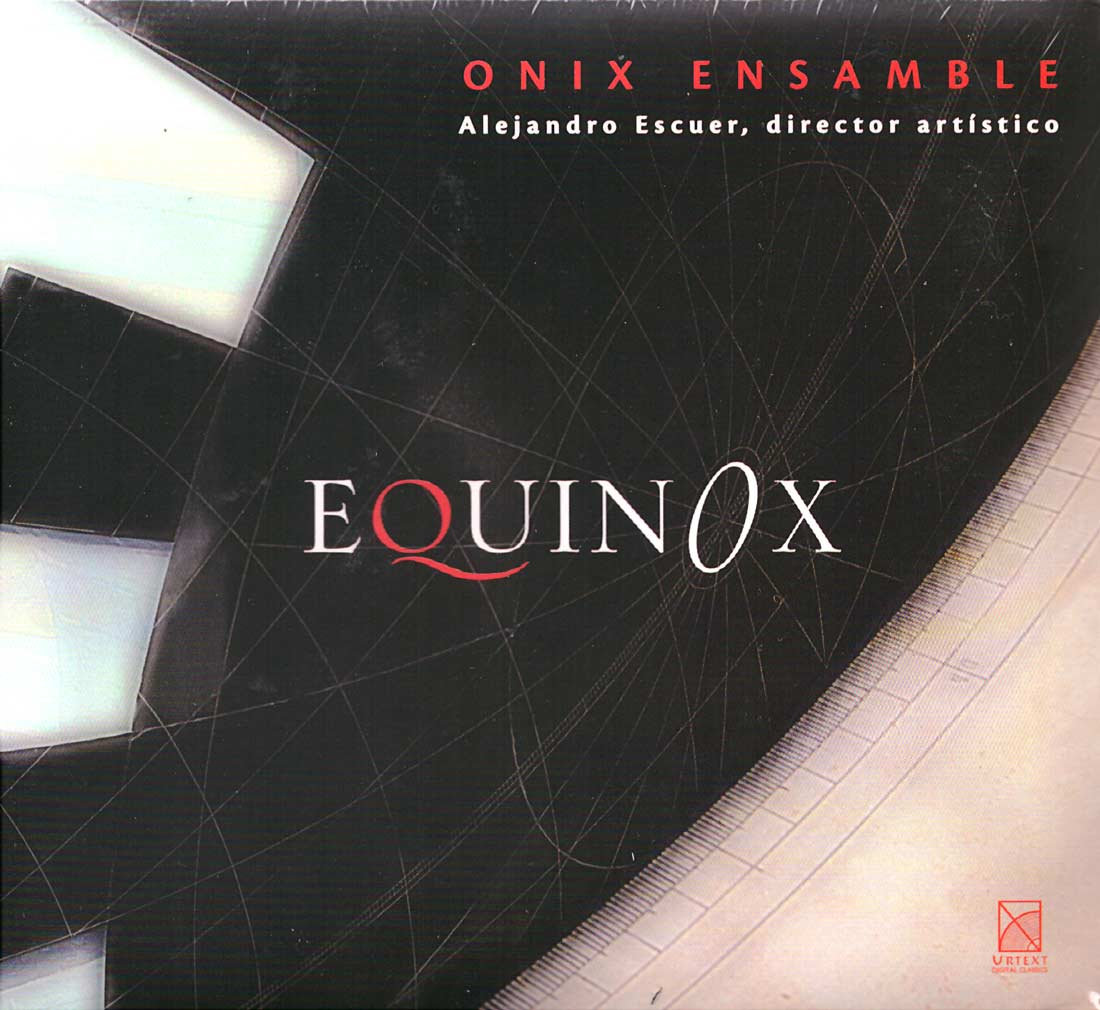The material, which will be presented next Tuesday, includes pieces by Alejandro Cardona, Gabriela Ortiz, Samuel Zyman and David Dzubay. With the edition of Equinox (Urtext, 2013) and 18 years of history, Onix Ensamble confirms its commitment to new music. His most recent album includes works by Mexicans Gabriela Ortiz and Samuel Zyman, the American David Dzubay and the Costa Rican Alejandro Cardona. Alejandro Escuer, flutist and director of the group, says in an interview with MILENIO that the album, which will be presented on January 21 at half past seven at night in the National Music Library, “takes its name from two of the movements of the work of Dzubay, Kukulkan II. The composer takes elements of the Mayan culture and its cosmovision, but metaphorically transforms them into contemporary expressions “. The other pieces also have this kind of metaphor, says the flutist. “This is the case of the double-headed eagle, by Gabriela Ortiz, a piece that has two visions: that of contemporary music, XX and XXI centuries, avant garde, and that of the rhythms of Mexican folk music. His style combines these two visions: a Latin American rhythm, his own, with a Mexican flavor -but that does not feel nationalist-, and another contemporary one “. Escuer explains that in Zachic -word that refers to the beggar, the bird of the 400 voices-, Alejandro Cardona “makes a metaphor of the warrior songs of the ancient Mexicans. He has lived many years in Mexico and we have had a very intense human and professional relationship, which is reflected in the piece. In one of the movements the violin is used as a kind of jarana, with quite contemporary rhythms and a single one that sounds a bit atonal. The result is a very interesting hybrid fusion. ” The work of Samuel Zyman, Music for five. With anima, handles another type of metaphor, explains the interviewee. “Samuel is very interested in the exploration of traditional forms, but in his melodic proposals he is very contemporary. His music can help a lot to understand more the current music to the people who start listening to it, just as Vivaldi is a gateway to Baroque music “. With this album, Onix Ensamble maintains its commitment to “give voice to Mexican music,” says Escuer. There are many creators who make their scores, but so that it does not end up in a drawer the music has to be heard, there must be an original and quality interpretative proposal. In the case of music, through Onix we want to strengthen contemporary art in Mexico. ” For the flutist it is also important that “the musical voice of the American continent is heard in front of the European continent, which is, by tradition of the classical western world, the great exporter of music from the 16th to the 18th century. That’s why we also support composers from the United States, Canada and Latin America. ” In addition, touching contemporary new works is, in many cases, facing new challenges. Each work, says Alejandro Escuer, “is a universe, with its own laws and rules, which implies a commitment to try a lot, more than you could do with composers of which there is already an interpretive tradition, for example, Beethoven. For this reason, another of Onix’s missions is to face the possibility of delivering a solid interpretative version to pieces that propose new directions and aesthetic and stylistic parameters. That takes a lot of time, but fortunately we have the support of the Mexico on Scene program, without which this would be difficult. “
EQUINOX | Onix Ensamble – Alejandro Escuer dir.
5 Oct, 2018

